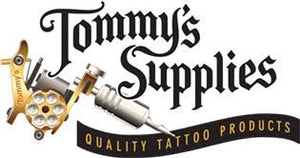Can You Get a Tattoo or Tattoo Removal While Pregnant or Breastfeeding? Expert Advice for Expecting Mothers

TL;DR
Getting a tattoo while pregnant or breastfeeding is generally discouraged due to infection risks, ink safety concerns, and limited research on fetal exposure. Similarly, laser tattoo removal during pregnancy is not considered safe because of potential stress, immune response, and a lack of safety studies. Most professionals recommend waiting until after pregnancy and breastfeeding are complete.
Introduction
Tattoos are a powerful form of personal expression—but if you’re pregnant or breastfeeding, it’s natural to question whether now is the right time to get one or remove an old one. This article unpacks expert advice, medical research, and professional standards to help guide your decision.
Can You Get a Tattoo While Pregnant?
While no law explicitly prohibits tattooing pregnant individuals, most reputable artists will refuse to tattoo someone who is pregnant. Here’s why:
1. Risk of Infection
Tattooing involves puncturing the skin, which inherently carries a risk of infection, including hepatitis B, hepatitis C, or bacterial contamination if equipment isn’t properly sterilized. During pregnancy, a woman’s immune system is already altered, which can make her more susceptible to infections—and any systemic infection can pose risks to the fetus.
According to the American Pregnancy Association, even though the risk of contracting serious infections is low in a licensed and hygienic studio, the consequences during pregnancy could be more serious than usual.
2. Ink Ingredients and Absorption
Tattoo inks contain pigments and carriers that are injected into the skin. Although most ink particles remain in the dermis, trace amounts may enter the bloodstream, and there is insufficient research on whether these components can affect the developing fetus.
The FDA has not approved any tattoo ink for injection into the skin, and ingredients can vary widely. Some may contain heavy metals like lead, mercury, or arsenic—all potentially harmful in pregnancy.
3. Allergic Reactions and Skin Sensitivity
Pregnancy alters hormonal and skin sensitivity levels, making allergic reactions or skin flare-ups more likely. Even if you’ve been tattooed before without problems, you may react differently during pregnancy.
4. Comfort and Healing
Sitting for a long tattoo session can be physically uncomfortable or stressful, especially in the later trimesters. Also, healing may be slower or less predictable due to changes in circulation and immune response.
Can You Get a Tattoo While Breastfeeding?
Breastfeeding mothers often wonder whether getting inked is safe. While there’s no conclusive evidence that tattoo ink or the process of tattooing affects breast milk, most medical professionals urge caution.
• If an infection or allergic reaction occurs, it could impact milk production or the mother’s overall health.
• Some aftercare medications or antibiotics prescribed post-tattoo may not be safe for a breastfeeding infant.
Many tattoo studios will ask clients to wait until they’re no longer nursing, or at least until the infant is a few months old and less vulnerable.
Tattoo Removal During Pregnancy: Is It Safe?
Laser tattoo removal involves using high-energy light pulses to break down ink particles in the skin, which the body then metabolizes.
Why It’s Not Recommended:
1. Lack of Research: There are no clinical studies proving the safety of laser tattoo removal during pregnancy, and most manufacturers of laser equipment advise against use on pregnant individuals.
2. Pain and Stress: The procedure can be painful and cause inflammation, triggering stress hormones that may affect fetal development.
3. Immune System Response: Tattoo removal relies on your body’s immune system to flush out ink particles. During pregnancy, immune function changes, which may alter removal effectiveness or healing.
4. Topical Numbing Agents: Many clinics use lidocaine or similar agents to reduce pain—but not all anesthetics are considered safe during pregnancy.
Safer Alternatives and Recommendations
If you’re considering a tattoo or removal during pregnancy or breastfeeding, here’s what experts suggest:
• Wait until after childbirth and nursing, when your body is no longer under hormonal and immune stress.
• If you’re already tattooed, focus on proper aftercare and sun protection during pregnancy to keep your ink healthy.
• Consult a physician if you’re considering any tattoo-related procedures during pregnancy.
• If you must undergo laser removal (for emergency or medical reasons), only do so under strict medical supervision.
Final Thoughts
While it might be tempting to commemorate your pregnancy journey with a new tattoo—or erase an old one—timing matters. When it comes to tattoos, both the act of getting one and removing one require the body to heal and respond efficiently. Pregnancy and breastfeeding are periods when that response may be unpredictable or risky.
The good news? Tattoos aren’t going anywhere. Waiting a few months could make a big difference in ensuring your safety—and your baby’s.
FAQs
Q: Can tattoo ink affect my baby during pregnancy?
A: There is no direct evidence, but since small particles may enter the bloodstream, and some inks contain heavy metals, the risk—though theoretical—is enough for experts to recommend caution.
Q: Are there tattoo inks that are safe for pregnancy?
A: No inks have been certified as safe for use during pregnancy by the FDA or any major regulatory body.
Q: Can laser tattoo removal harm my unborn baby?
A: There is not enough research to say for certain, which is why most providers and doctors recommend waiting until after pregnancy.
Q: Is it safe to touch up an old tattoo while pregnant?
A: Touch-ups involve the same risks as new tattoos and should be avoided until after pregnancy.
Q: Can I breastfeed after getting a tattoo?
A: If you’re healthy and healing well, it may be okay, but consult your doctor and avoid complications like infection or medications that could affect breast milk.










